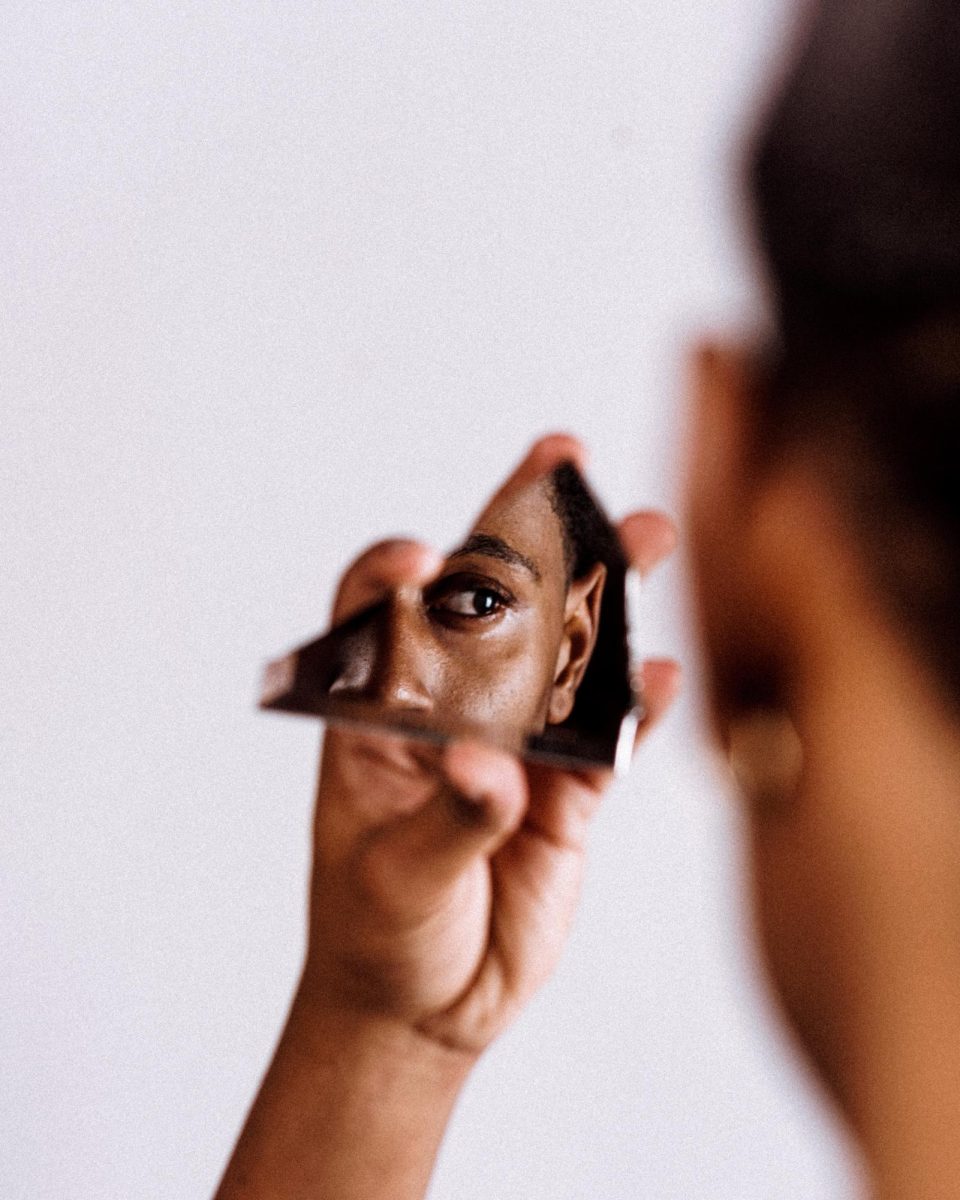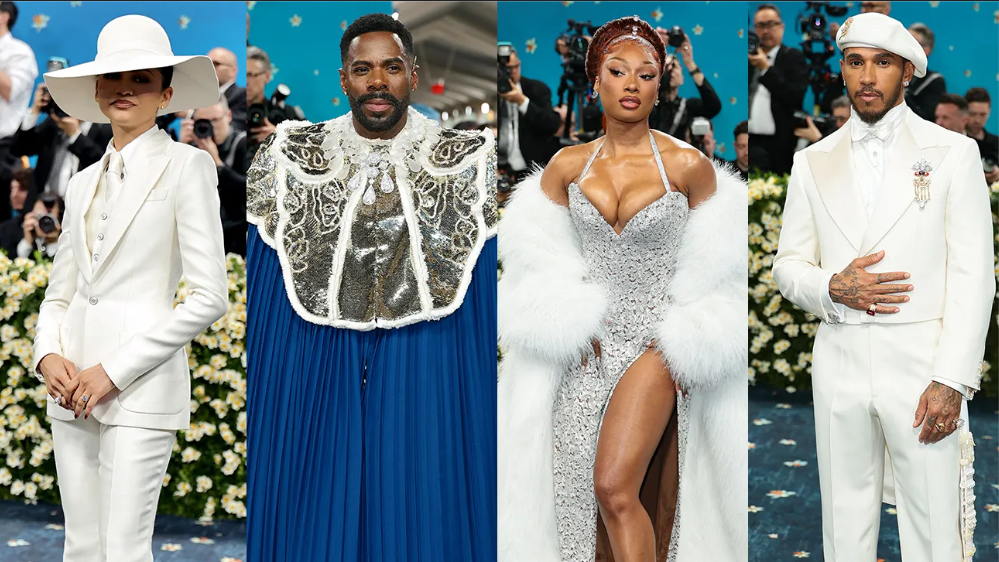Oxford Languages defines conceptual masculinity as “qualities or attributes regarded as characteristic of men or boys,” but that’s not nearly specific or direct enough to be a satisfactory explanation for the modern audience. To create a comparison worth reading, The Talon interviewed Osbourn students and teachers to develop a general idea as to Osbourn’s modern understanding of what is and isn’t considered masculine behavior.
When asked to name a trait that he considered particularly masculine, a senior named Daniel said, with a perfectly straight face, “Big, fat muscles.”
As simple and straightforward as this answer is, it’s shallow. You could be built like a freight train and still be extremely feminine. Though this answer is rather surface-level, that doesn’t mean it’s useless. It does indicate a historically prevailing opinion that a person’s masculinity is, by its very nature, is based in or heavily tied to a person’s physique. This idea doesn’t hold much weight when compared to the classical understanding of “acting like a man,” which comes from sources such as medieval-era literature, the Beowulf-esque Anglo-Saxon hero, and even religious texts like the Qur’an and the Holy Bible.
To start off with, a look back at the medieval knight’s Code of Chivalry is in order. According to this code, every knight was to practice and implement the virtues of prowess (strength, bravery, and skill in battle), courtesy (being polite and mannered, considering the needs and feelings of others, protecting and providing for the weak, treating women with gallantry and dignity), and faithfulness (remaining loyal to God, authority figures, family, and friends). This was the way that the Arthurian knights found that a man should act. While the code says nothing about physique explicitly, it does say that knights must be capable on the battlefield, which implies some physical fitness.
So, if we do use the Code of Chivalry to help us grasp the meaning of masculinity, then Daniel’s comment does hold some water. When asked the same question, another senior named Oprah told The Talon: “I think toughness and stoicism, the ability to do hard manual labor is what I consider masculine.” Now it’s getting more modern. With the developmental changes brought about by the Industrial Revolution, men became the predominant laborers responsible for occupations composed of rough physical labor, which remains the case today. This societal phenomenon, while largely based in the physical differences between men and women, did have big future implications for the societal view of manhood. More specifically, it centered the understanding of “masculinity” on the man’s role in Industrial-era society: the breadwinner.
One of the cornerstones of Western society is religion. The understanding of law and morality in the West is predicated on the ancient religious texts found and utilized in the three Abrahamic religions: Christianity, Islam, and Judaism. Faiths that are similar in small ways and different in big ones. The predominant religion of the West was Christianity, though there was a considerable influence from Islam and Judaism in the foundation of Western society. So what do these religions say that a man should be?
The noble Qur’an outright states the role of a man in the fourth chapter (An-Nisa’) verse 34 which says: “Men are the caretakers of women, as men have been provisioned by Allah over women and tasked with supporting them financially. And righteous women are devoutly obedient and, when alone, protective of what Allah has entrusted them with. And if you sense ill-conduct from your women, advise them first, if they persist, do not share their beds, but if they still persist, then discipline them gently. But if they change their ways, do not be unjust to them. Surely Allah is Most High, All-Great.”
This makes it quite easy to determine the way that the Qur’an intends for men to act: protectors, providers, leaders, and disciplinarians. The Jewish Talmud has a very different and very interesting example of manly capability. A story that comes from Bava Metzia 84a:12 tells of a man named Reish Lakish who, upon seeing someone bathing in the Jordan River, shed his armaments and pole-vaulted across the river in pursuit of this mysterious figure. Upon reaching the bathing site he finds none other than famous scholar Rabbi Yohanan, who wastes no time in telling him that his manly prowess in following the Rabbi would be better used in the study of the Torah. This story decisively notes the consideration of physical prowess, especially in the pursuit of romance, to be manly and a sign of male maturity.
Finally, on to the Holy Bible. In the Bible, a few verses are seen to depict a beneficial form of Christ-like manhood. The one most centered around how men should act is without a doubt 1 Corinthians 16:13-14 (ESV) which has the Apostle Paul writing: “Be watchful, stand firm in the faith, act like men, be strong. Let all that you do be done in love.”
Strength, faith, vigilance, and love. According to Paul the Apostle that’s all there is to it. All three texts state three different interpretations of what a man should be, but that doesn’t mean that there’s no room for commonality. There is a common thread that runs through all of these segments of religious text: love. Whether it’s Allah’s will for a man to protect and provide for his woman, or Reish Lakish shedding his defenses and displaying incredible athleticism for just a chance at finding love, or even the inspired Apostle Paul telling the men of Corinth to do everything they do out of love, it’s easy to see the common theme here. With this in mind, we make the conclusion that the very core of true masculinity is love. That a man’s place is to be a loving, gentle, vigilant, and protective provider for those around him.
Of all the things that a man ought to be, loving is undoubtedly most important.














Litzy Soriano • Jan 5, 2024 at 1:14 pm
I feel like this article has a lot more meaning to it especially with adding the religions to it and it falls into place really well, with good meaning and background.
Jasmine Villanueva • Dec 8, 2023 at 12:55 pm
I like this article because I think it’s something different, and I loved how you got information from different religions too.
vivian • Dec 8, 2023 at 10:25 am
This is something different and i love it how you brought attention to it .
Lizbeth • Dec 6, 2023 at 12:05 pm
I never thought I would read an article like this on here. this a really great article. There are so many ways that people can think of toxic masculinity, and there are so many males that try to be or act more masculine as well, it’s really cool to hear about the mental effects and the images that come with this.
Michelle McDonell • Dec 4, 2023 at 12:03 pm
This article is very deep compared to other articles that I have read. I love the idea that being masculine is to be loving. Toxic masculinity is a topic that mentally effects men and women, so it’s interesting to hear about true masculinity like this.
Allison Avila • Dec 4, 2023 at 10:29 am
i don’t think there is any way to define a man in my opinion. i feel like the term and definition for masculinity has always been used to put down and make men feel insecure by saying stuff such as “not man enough”. so i appreciate that this article sort of replenished its meaning and confirmed it just means to be human and respectful